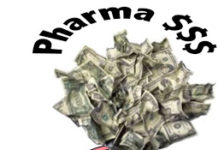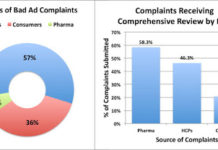In Memory of Steve Jobs Will Novartis Sales Reps Really Embrace iPads?
David Epstein, head of Novartis Pharmaceuticals, said eighty percent of his company's sales reps will give up their PCs for iPads in 2012. Will they do it?
The Pharmaguy Social Media Timeline&trade: A Record of Social Media Events Impacting the Pharmaceutical...
The long-awaited social media guidance from the FDA -- whenever it arrives -- may turn out to be nothing more than a stamp of approval on activities in which the industry is currently engaged. Practically every issue that FDA guidance is expected to address has already been handled independently by a few pioneering pharmaceutical companies. Rather than waiting for FDA's anti climatic guidelines, Pharmaguy decided to publish The Pharmaguy Social Media Timeline™ now, at a time when the industry already has set precedents in every social media application.
Pharma Marketing News Vol. 10, No. 9: 18 May 2011
Welcome to Volume 10, Issue #9 (18 MAY 2011) of Pharma Marketing News.
The Phil Mickelson Enbrel Campaign
From the Audition in the Press to TV, Web, and Print Advertising. Pfizer and Amgen demonstrate how to launch a branded spokesperson campaign starting from a bit of over-the-top unregulated press relations to fully regulated TV, print, and Web advertising. It must be costing a mint!
Pharma Marketing News Vol. 10, No. 10: 8 June 2011
Welcome to Volume 10, Issue #10 (8 JUNE 2011) of Pharma Marketing News.
The Pozen Digital Advisory Board
A conversation with Elizabeth A. Cermak, EVP, and Chief Commercial Officerat Pozen, Raj Amin, CEO and Co-Founder of HealthiNation, and Bonin Bough, Senior Global Director of Digital and Social Media, PepsiCo, about the who, what, why behind the Pozen Digital Advisory Board, an esteemed group of digital thought-leaders both in and outside of healthcare.
Pharma Marketing News Vol. 10, No. 10: 8 June 2011
Welcome to Volume 10, Issue #10 (8 JUNE 2011) of Pharma Marketing News.
Most Credible Bad Ad Complaints are Submitted by Pharma
According to a Bad Ad Program 2010-2011 Year End Report just issued by the FDA, the program is a success despite the fact that ONLY 125 complaints were deemed worthy of
Pharma Marketing News Vol. 10, No. 19: 21 December 2011
Welcome to Volume 10, Issue #19 (21 DECEMBER 2011) of Pharma Marketing News.
Pharma Marketing News Vol. 10, No. 11: 21 June 2011
Welcome to Volume 10, Issue #11 (21 JUNE 2011) of Pharma Marketing News.







![6 Digital Tools at the Center of Healthcare Digitalization [INFOGRAPHIC]](http://ec2-54-175-84-28.compute-1.amazonaws.com/pharma-mkting.com/wp-content/uploads/2021/04/6DigitalTools_600px-100x70.jpg)



